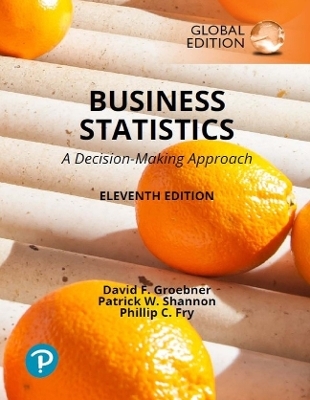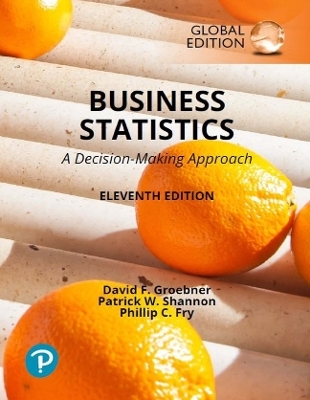
Contemporary Bayesian Econometrics and Statistics
John Wiley & Sons Inc (Hersteller)
978-0-471-74473-3 (ISBN)
- Keine Verlagsinformationen verfügbar
- Artikel merken
Bayesian analysis is a highly effective tool in the many cases when economic decisions are based on limited or imperfect information. For students and professionals familiar with basic econometrics, this volume is an accessible entry point into the Bayesian method. It shows how simulation models provide a systematic and practical approach to the application of Bayesian statistics in typical real-world decisions. The book presents a series of specific econometric models - from motivating decision through mathematical details and on to applications for research-level data sets - using software integrated with the text.
JOHN GEWEKE, PHD, is Harlan McGregor Chair in Economic Theory and Professor of Economics and Statistics at the University of Iowa. He is an elected Fellow of the Econometric Society and the American Statistical Association, former President of the International Society for Bayesian Analysis, and coeditor of the Journal of Econometrics.
Preface. 1. Introduction. 1.1 Two Examples. 1.1.1 Public School Class Sizes. 1.1.2 Value at Risk. 1.2 Observables, Unobservables, and Objects of Interest. 1.3 Conditioning and Updating. 1.4 Simulators. 1.5 Modeling. 1.6 Decisionmaking. 2. Elements of Bayesian Inference. 2.1 Basics. 2.2 Sufficiency, Ancillarity, and Nuisance Parameters. 2.2.1 Sufficiency. 2.2.2 Ancillarity. 2.2.3 Nuisance Parameters. 2.3 Conjugate Prior Distributions. 2.4 Bayesian Decision Theory and Point Estimation. 2.5 Credible Sets. 2.6 Model Comparison. 2.6.1 Marginal Likelihoods. 2.6.2 Predictive Densities. 3. Topics in Bayesian Inference. 3.1 Hierarchical Priors and Latent Variables. 3.2 Improper Prior Distributions. 3.3 Prior Robustness and the Density Ratio Class. 3.4 Asymptotic Analysis. 3.5 The Likelihood Principle. 4. Posterior Simulation. 4.1 Direct Sampling,. 4.2 Acceptance and Importance Sampling. 4.2.1 Acceptance Sampling. 4.2.2 Importance Sampling. 4.3 Markov Chain Monte Carlo. 4.3.1 The Gibbs Sampler. 4.3.2 The Metropolis--Hastings Algorithm. 4.4 Variance Reduction. 4.4.1 Concentrated Expectations. 4.4.2 Antithetic Sampling. 4.5 Some Continuous State Space Markov Chain Theory. 4.5.1 Convergence of the Gibbs Sampler. 4.5.2 Convergence of the Metropolis--Hastings Algorithm. 4.6 Hybrid Markov Chain Monte Carlo Methods. 4.6.1 Transition Mixtures. 4.6.2 Metropolis within Gibbs. 4.7 Numerical Accuracy and Convergence in Markov Chain Monte Carlo. 5. Linear Models. 5.1 BACC and the Normal Linear Regression Model. 5.2 Seemingly Unrelated Regressions Models. 5.3 Linear Constraints in the Linear Model. 5.3.1 Linear Inequality Constraints. 5.3.2 Conjectured Linear Restrictions, Linear Inequality Constraints, and Covariate Selection. 5.4 Nonlinear Regression. 5.4.1 Nonlinear Regression with Smoothness Priors. 5.4.2 Nonlinear Regression with Basis Functions. 6. Modeling with Latent Variables. 6.1 Censored Normal Linear Models. 6.2 Probit Linear Models. 6.3 The Independent Finite State Model. 6.4 Modeling with Mixtures of Normal Distributions. 6.4.1 The Independent Student--t Linear Model. 6.4.2 Normal Mixture Linear Models. 6.4.3 Generalizing the Observable Outcomes. 7. Modeling for Time Series. 7.1 Linear Models with Serial Correlation. 7.2 The First--Order Markov Finite State Model. 7.2.1 Inference in the Nonstationary Model. 7.2.2 Inference in the Stationary Model. 7.3 Markov Normal Mixture Linear Model. 8. Bayesian Investigation. 8.1 Implementing Simulation Methods. 8.1.1 Density Ratio Tests. 8.1.2 Joint Distribution Tests. 8.2 Formal Model Comparison. 8.2.1 Bayes Factors for Modeling with Common Likelihoods. 8.2.2 Marginal Likelihood Approximation Using Importance Sampling. 8.2.3 Marginal Likelihood Approximation Using Gibbs Sampling. 8.2.4 Density Ratio Marginal Likelihood Approximation. 8.3 Model Specification. 8.3.1 Prior Predictive Analysis. 8.3.2 Posterior Predictive Analysis. 8.4 Bayesian Communication. 8.5 Density Ratio Robustness Bounds. Bibliography. Author Index. Subject Index.
| Erscheint lt. Verlag | 27.9.2005 |
|---|---|
| Verlagsort | New York |
| Sprache | englisch |
| Gewicht | 10 g |
| Themenwelt | Wirtschaft ► Volkswirtschaftslehre ► Ökonometrie |
| ISBN-10 | 0-471-74473-5 / 0471744735 |
| ISBN-13 | 978-0-471-74473-3 / 9780471744733 |
| Zustand | Neuware |
| Informationen gemäß Produktsicherheitsverordnung (GPSR) | |
| Haben Sie eine Frage zum Produkt? |
aus dem Bereich

